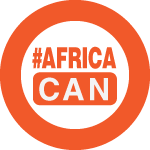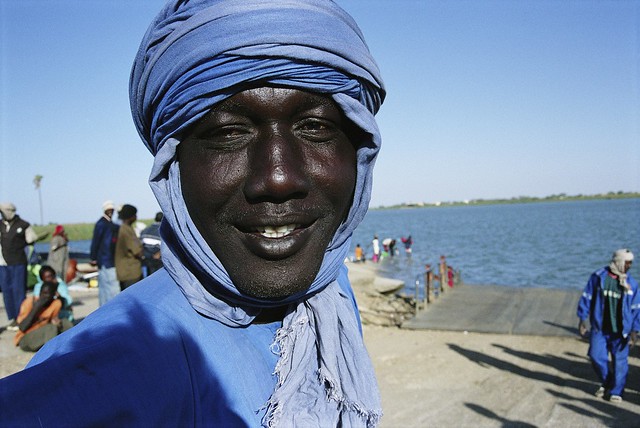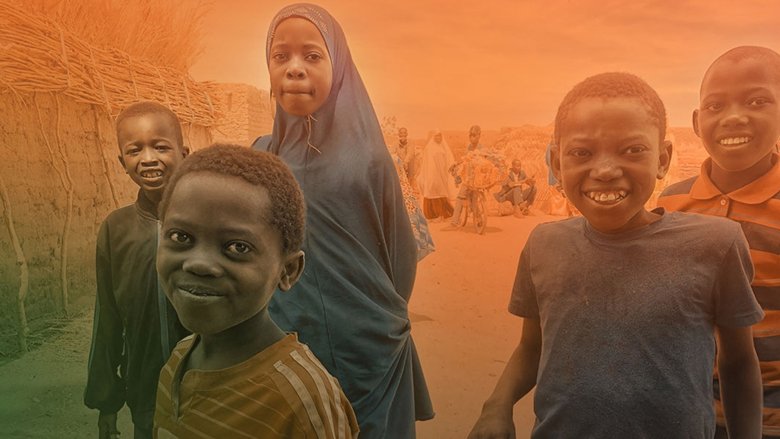To combat poverty and vulnerability, the World Bank has helped Comoros build a national safety net system and expand its coverage, focusing on resilience, job creation, protection of human capital, women’s empowerment, and economic inclusion while strengthening the crisis response. Coverage of long-term safety net programs has increased from 3% in 2021 to 9% in 2022. The $30 million Shock Responsive and Resilient Safety Net Project, which became effective in February 2023, has kept these efforts alive through its various components and will increase this coverage to 17%.
As of August 2024, over 40,000 households of the three islands have benefited from the social cash transfer through digital payment. The project is currently launching the economic inclusion component: 13,000 households among the most vulnerable segment of the 40,900 households previously mentioned will benefit from income-generating activities support while around 5000 households will participate in productive cash for work program.
The project aims to provide emergency cash transfers and improve the resilience of vulnerable households. Through the combination of income support, accompanying measures, behavior change communication, and training, the project seeks to protect against severe short-term shocks and help build long-term resilience. To tackle the intergenerational transmission of poverty, human development accompanying measures include early childhood development (ECD), parenting practices, nutrition, awareness for children’s education, and women’s empowerment, which today cover around 20,000 children under 6 years of age. The project has a strong focus on women and youth empowerment to reduce existing gaps, including in employment. The interventions prioritize women as main cash transfer recipients, and support female-led income-generating activities.
The $25 million Integrated Development and Competitiveness Project (PIDC) ended on July 31, 2024, surpassing all of its development goals. This includes creating jobs, mobilizing private capital, increasing revenue for beneficiary MSMEs and cooperatives, and boosting agricultural production for beneficiaries, with disbursements reaching over 98%. By implementing value chain and firm-level activities, the PIDC strengthened its efforts to foster private-sector-led growth, reduce poverty, and empower the poorest and most vulnerable segments of the population. Project achievements include:
· A 30% increase in revenue was achieved by beneficiary young entrepreneurs, MSMEs, and cooperatives supported through the Business Plan Competition. They received technical assistance, grants, and matching grants ranging from $6,000 to $80,000.
· 3,047 jobs were created.
· 39% increase in the volume of agriculture production sold by project beneficiaries.
· $8.2 million in private capital was mobilized.
· 11 multi-service platforms were established and strengthened to support agriculture and livestock sectors and 23 agriculture warehouses were developed.
· 34% increase in the yield of vegetable and food crops.
· 30 km of rural roads were rehabilitated fostering market connectivity.186 MSMEs and cooperatives were supported through the business plan competition, 46% being women, and 100 young entrepreneurs receiving financial and technical assistance.
· Institutional and regulatory capacity building included strengthening the tourism sector and agriculture sectors, and the Investment Promotion Agency and Chambers of Commerce and Agriculture.
· More than 62,000 project beneficiaries were reached.
Phase 3 of the Food System Resilience Program (FSRP-KM) ($40 million) has been effective since September 5th, 2023, providing medium- to long-term responses to the food security crisis in Comoros and assisting 150,000 direct beneficiaries, 60,000 of whom are women. The project increases the resilience of the national food systems and the country’s preparedness for food insecurity, agriculture, livestock, and fisheries. It is strengthening the availability of basic agriculture improved inputs (seed, fertilizers, animal feeds) and services (extension, training, phytosanitary/veto); sustainable and resilient landscape and watershed management; resilient fisheries by improving productivity and value-chain improvement together with strengthened fisheries governance; climate change adaptive and resilient coastal and marine resources management; research and innovation that can deliver climate-smart solutions into the hands of farming communities.
Key milestones achieved include (i) validation of the Comoros Food Security Crises Preparedness Plan, which identifies major food and nutrition risks, stakeholders roles and responsibilities in case of crisis, and the potential resources to be mobilized; (ii) launch of the agricultural general census, with the first completed; and (iii) initiation of the rehabilitation of 15 km of feeder roads, with 30% of the civil works completed and an additional 40 km of roads under feasibility study. The project is scaling up the production of existing climate-resilient and high-yield staple food crops such as cassava, sweet potatoes, and bananas, with over 400 000 seedlings to be distributed this planting season (November-December 2024). Additionally, the project is financing a warehouse receipt system to provide private sector access to finance/guaranty and storage services for food import. Food import, including rice, accounts for 75% of the country's food needs, making it critical for food security.
The Comprehensive Approach to Health System Strengthening Project (COMPASS) has helped improve access to quality primary healthcare with over 175,000 people having received health, nutrition, and/or population services through the project. Key milestones have included: the distribution of 38 scholarships for clinical and public health training; the enrollment of 80 health facilities in the Performance-Based Financing Program and the payment of the first subsidies; and supporting 173 community health and nutrition interventions through equipment provision, training of community agents, and promotion campaigns. This activity converges with the social protection sector interventions. The project also supports the enhancement of training curricula for lab technicians and paramedics, and the training of health workers by providing for in-service and pre-service training.
Last Updated: Oct 09, 2024







